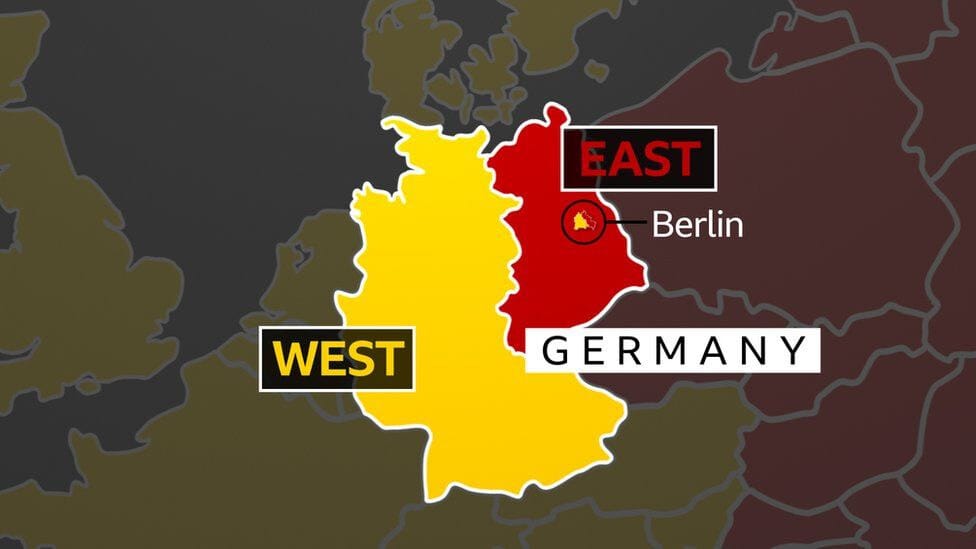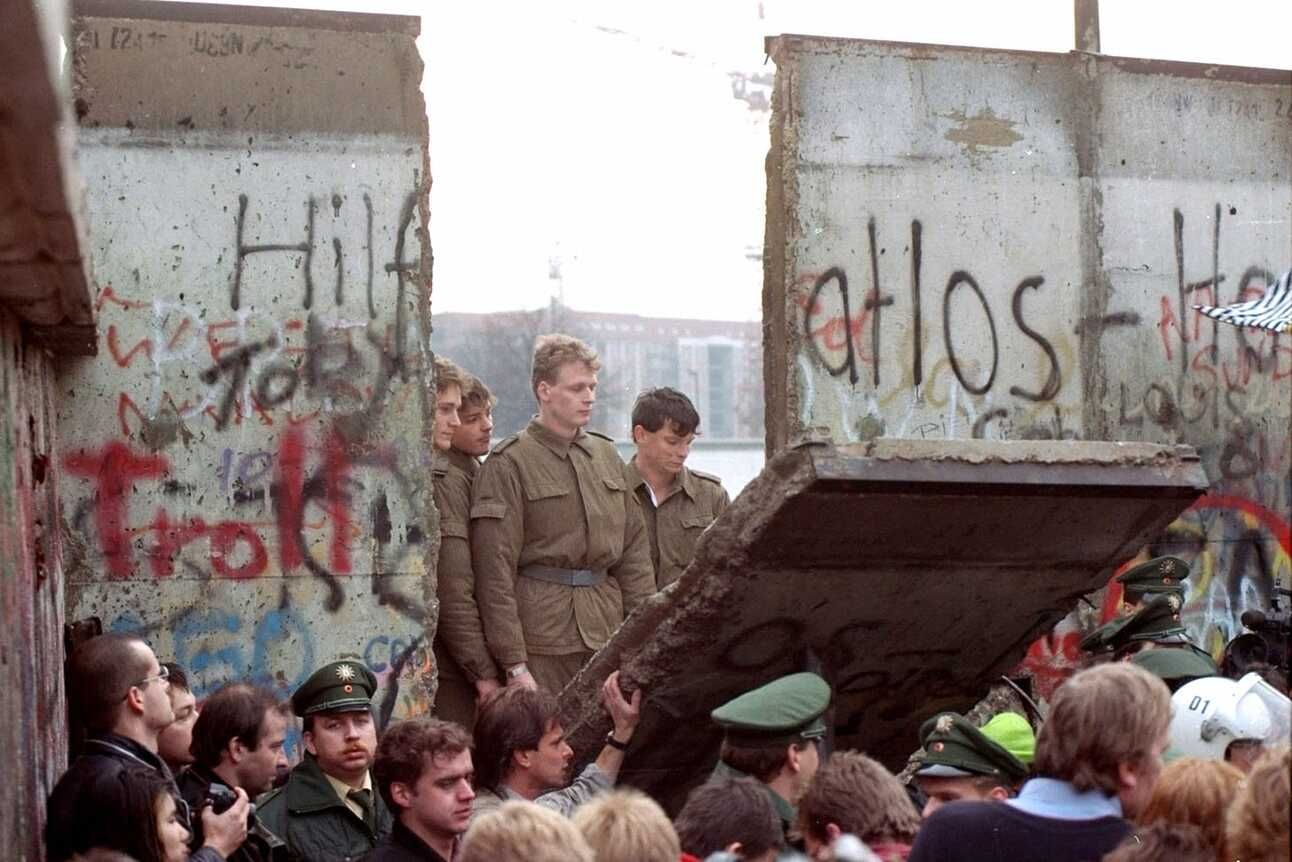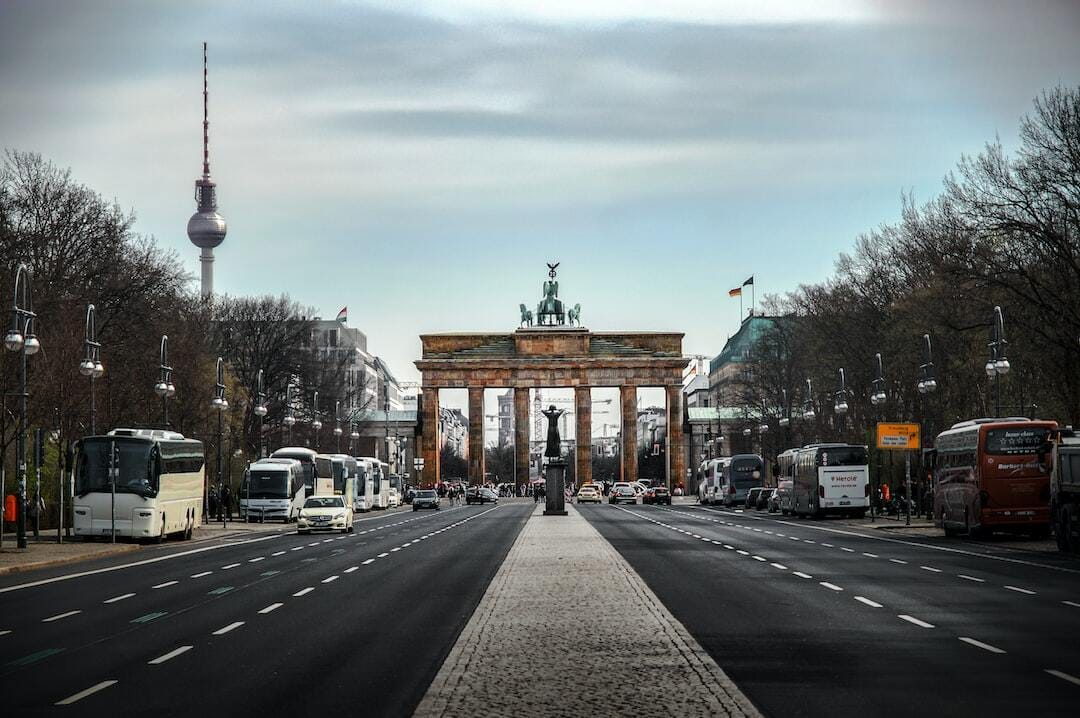When I was 14, I witnessed the historic moment of the Berlin Wall being taken down. At the time, Ronald Reagan was the President of the United States. While I didn't fully comprehend the event's significance, I was deeply moved by the sight of families reuniting after being separated for decades. It was a time of great hope and optimism as the world seemed to move towards greater unity and cooperation.
Looking back, I now understand that the construction of the Berlin Wall was a symbol of the Cold War and the ideological divide between East and West. Its fall marked the beginning of a new era in which nations and people were no longer divided by walls and barriers. The legacy of this momentous event continues to inspire me to this day as a reminder that anything is possible when we work together towards a common goal.
The Berlin Wall was a massive concrete barrier that stretched across Berlin, dividing the city for nearly three decades, from 1961 to 1989. It was constructed by the German Democratic Republic (GDR) to prevent East Berliners from escaping to the West. The wall was a stark reminder of the Cold War and the deepening ideological divisions that defined Europe during the second half of the 20th century.
The Berlin Wall was a massive wall that separated people. It caused many problems, like families being split up and friends being separated. Life was challenging because of it. The wall symbolized the Cold War and showed how much pain and division it caused people.
In this blog post, we will learn about the history of the Berlin Wall, from its beginnings to its construction. We will look at how it affected the people of Berlin in the East and West and changed politics and culture. Lastly, we will study the events that led to the fall of the wall in 1989 and what happened afterward when Germany and the world tried to deal with the end of the Cold War and the reunification of separated people.
Germany Split into Two
After World War II, Germany was divided into two separate states due to differences between the Western Allies and the Soviet Union. The Western Allies occupied some parts of Germany. It established the Federal Republic of Germany (West Germany), while the Soviet Union occupied other parts and established the German Democratic Republic (East Germany).

This division was a significant factor in the Cold War and the ideological divisions of Europe during the second half of the 20th century. The Western Allies wanted to rebuild Germany as a democratic and capitalist nation, while the Soviet Union wanted a socialist state in East Germany.
The separation from Germany had significant ramifications for the people living in the country. Families were divided, friends were separated, and daily life was disrupted. The country's division deeply impacted the lives of Germans, reminding them of the ideological divisions and tensions that characterized Europe during the second half of the 20th century.
Building the Wall
On August 13, 1961, the government of East Germany built the Berlin Wall to prevent skilled workers and professionals from emigrating to West Germany. The wall was constructed due to the increasing number of people leaving East Germany, creating a brain drain and weakening the economy.
The wall was initially just a barbed wire fence, but it was soon replaced with a more substantial concrete and steel barrier that was difficult to cross. This led to many failed attempts by East Germans to escape, resulting in several people's death.
The Berlin Wall was built overnight and separated West Berlin from East Berlin and the rest of East Germany. It was 96 miles long and shocked many Berliners who woke up to find their city divided. The wall symbolized the separation between East and West Germany during the Cold War. It had a significant impact on the people who lived near it.

Life Under the Wall
The Berlin Wall was built during the Cold War, dividing Europe into East and West. It physically separated families, friends, and co-workers in Berlin and caused emotional pain for those who couldn't see their loved ones. The wall had a significant impact, breaking up families and preventing people from attending funerals.
The wall also hurt West Berlin's economy by stopping the flow of essential supplies from East Germany. Building and maintaining the wall was costly and strained the economies of both East and West Germany.
The wall was heavily guarded, and crossing it meant risking death. Some people still tried to escape to the West, risking their lives. Many lost their lives crossing the wall, making the Berlin Wall a symbol of oppression and division for many years.
The Fall of the Wall
The Berlin Wall fell on November 9, 1989, which ended the era of the Cold War and began a new period of unity and cooperation. The peaceful revolution in East Germany helped reunify Germany, a long-awaited goal. People in East Germany had been suffering under a strict regime for a long time and finally protested for freedom and democracy. Their demands were heard worldwide, and the East German government was forced to meet them eventually.

The Berlin Wall opening gave hope and a new beginning to the people of Germany and the world. People were thrilled and celebrated. It showed that humans can make a change. The fall of the Berlin Wall was a critical moment in history. Today, it reminds us to be brave, work together, and keep going even when things are hard.
The Reunification of Germany
After the Berlin Wall fell, Germany began to reunite. East and West Germany had been divided for nearly 40 years, so this was a critical moment in German history. On October 3, 1990, East Germany officially joined West Germany to become the modern German state.
Reuniting was difficult because East and West Germany had different lifestyles. East Germany was communist, while West Germany was capitalist. They had to create new rules and laws and merge their economies.
This was a difficult process that took several years to complete. One of the most challenging aspects was integrating the economies of East and West Germany. East Germany suffered greatly under communist rule and required significant financial investment to improve its economy.
Another difficulty was bringing together the social and cultural aspects of the two parts of the country. People from East and West Germany had contrasting experiences and lifestyles. They needed time to understand their different backgrounds and create a common identity.
The coming together of Germany was a crucial moment in European history. It happened after a lot of difficulties. It stopped the Cold War and the separation of Europe into two different sides. It also caused a new united and democratic Germany. Germany is now one of the most successful and influential countries in Europe.
Germany Today…
Germany is an important country in the world. It is a leader in many things, like technology, science, and culture. When the Berlin Wall fell, Germany became one country again. This shows that democracy, freedom, and people's spirit can do great things. Even though there have been problems, Germany has proved that people can work together to make things better.

Germany has long and complicated history has affected its current position globally. From the Holy Roman Empire to the Nazi regime, Germany has had many good and bad times. However, the country is doing very well, with a strong economy and many cultural treasures.
Germany is famous for its technological innovation and advanced research. Some major companies contributing to engineering, transportation, and renewable energy include Siemens, Bosch, and Volkswagen. Additionally, Germany is home to renowned universities such as the Technical University of Munich and the University of Heidelberg.
Germany has a strong history of doing great science. Some of the most important discoveries in human knowledge, like Albert Einstein's work and the discovery of chemical elements, were made by German scientists. Germany is still a leader in biotechnology, pharmaceuticals, and environmental science.
Germany has a rich cultural history. Some of the world's greatest artists, such as Bach, Beethoven, Goethe, and Schiller, come from Germany. The country's reunification after the fall of the Berlin Wall represents hope and progress. It shows that people can work together to build a better future, even when facing significant challenges.